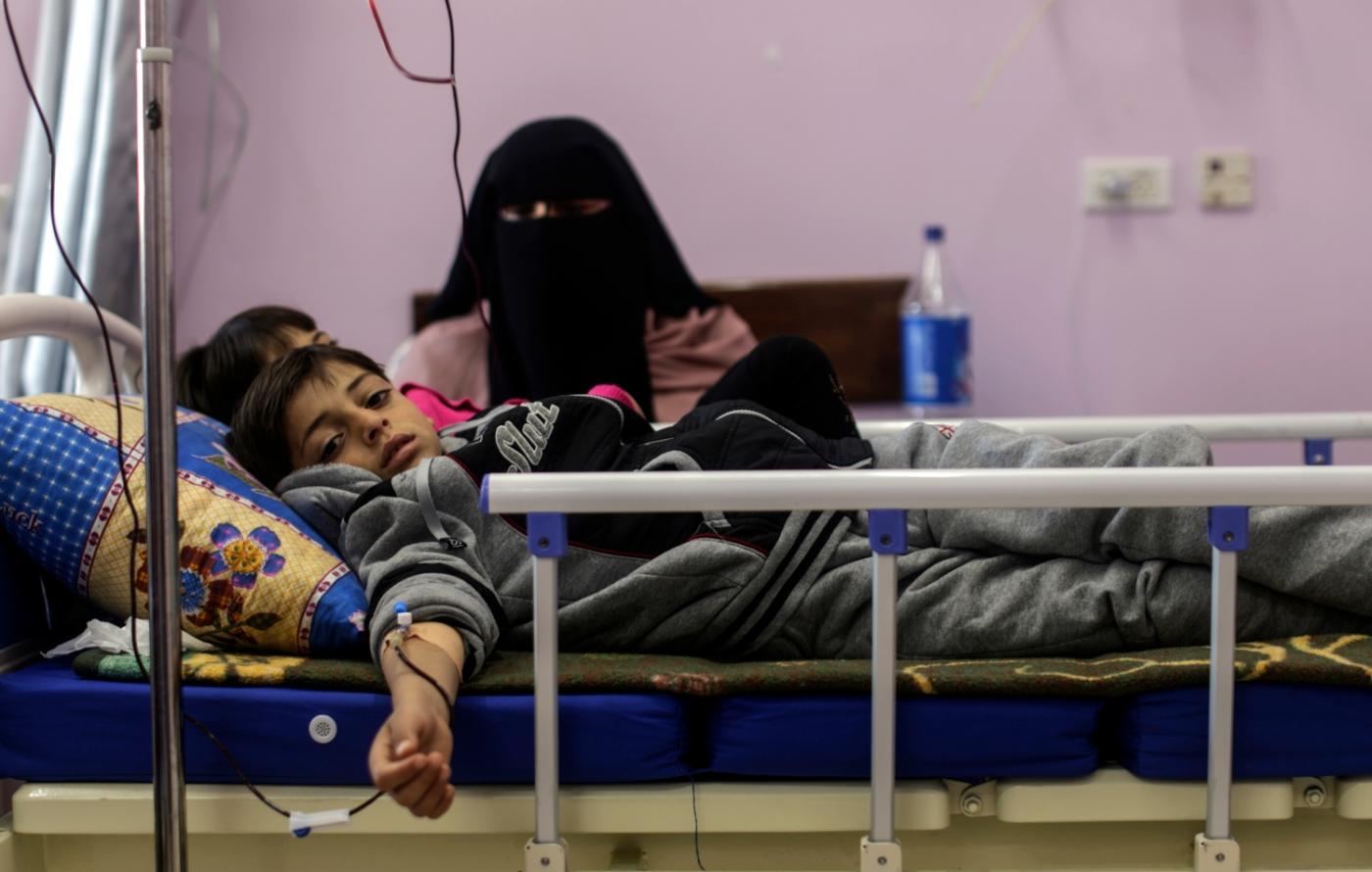A Ramallah-based employee of the PA Ministry of Health, who requested anonymity, told MEE that the PA only halted financial subsidies for Palestinian patients receiving treatment in Israeli hospitals, but was still covering medical expenses for Gaza and West Bank patients receiving treatment in Palestinian hospitals in the West Bank.
The suspension of exit permits, however, has also jeopardised Gaza patients’ access to West Bank medical facilities, as they must travel through Israel to access the rest of the occupied territories.
“The suspension of coordination has not only affected those receiving medical treatment in Israeli hospitals, but even put Gaza patients who receive treatment in Palestinian hospitals in the West Bank in a dilemma,” he said.
“There are patients from Gaza who are currently stuck in the West Bank as Israeli authorities refuse to allow them into Gaza after their treatment because PA authorities have not coordinated for their return.”
Palestinian news outlets have reported that Israeli hospitals have also been refusing to provide further treatment to patients from the West Bank, occupied East Jerusalem and the Gaza Strip since the PA has stopped paying for such procedures and filing requests of medical treatment.
“We are on the brink of medical chaos,” PHRI warned in a press release on 10 June. “Right now, hundreds are affected. Thousands will be affected soon.”
The Jaffa-based organisation said it had set up an “alternative coordination mechanism” for humanitarian and medical travel permits since late May, but maintained that it held “the Israeli occupation fully responsible for the lives of Palestinian patients in the Gaza Strip who are in dire need for medical treatment abroad”.
PHRI had been coordinating the exit permit for young Omar Yaghi, successfully obtaining permits for him to be operated on 21 June. The infant died only three days before the scheduled operation.
“As an occupying power, Israel is responsible for the wellbeing of the civilian population of the Gaza Strip and the occupied territories under international law,” Muhammed Emad, a legal adviser for Euro-Med Monitor, told MEE.
“No matter what the circumstances are, Israeli authorities must at least find an alternative to allow patients in the blockaded Gaza Strip to receive medical treatment in the Palestinian hospitals in the West Bank.”
Fearing death
With no solution in sight, patients from Gaza have been fearing the worst.
Um Mohammed Youssef, a 67-year-old cancer survivor, says that she is afraid that her tumour will return while she is unable to undergo her regular medical examination at the Augusta Victoria Hospital in East Jerusalem.
“Since I was first diagnosed with cancer over 16 months ago, I have been through many difficulties where Israeli authorities made things even harder on me,” she told MEE. “For example, they have denied all my children permits to accompany me during my previous visits, which resulted in many delays for appointments.
“But now, I am afraid that I will not even be able to obtain my own exit permit, and that might lead to many bad consequences on my health.”

Roaa, 14, has been battling Hodgkin’s lymphoma for the past two years, but is now unable to receive further treatment (Supplied)
The suspension of Israeli-issued exit permits has only worsened his daughter’s psychological state, Hamdan added.
“Roaa already feels very stressed out about chemotherapy, she regularly needs psychological support, and the current situation is even adding more pressure on her.”
The Palestinian father denounced how patients were being held hostage by the political situation.
“They should not be party to political disputes. This is a humanitarian cause, Israel must at least grant patients exit permits as soon as possible to allow them to receive medical treatment in the West Bank,” he said.
“Roaa stopped attending school two years ago due to her severe illness and constant pain,” Hamdan added. “We were hoping that she would be able to go back to school next year, but as long as the situation remains the same, I am not even sure that she will be alive then.”
Youssef said that the worst part of the current crisis was the separation of patients, now stuck alone in Israel or in the occupied territories, from their families in the Gaza Strip.
“A relative of mine with leukaemia has reached a point where her body no longer responds to treatment. She is currently in a West Bank hospital and cannot come back to Gaza due to the lack of coordination,” she said.
“I call her every couple of days, and every time I speak to her she cries and tells me that she just wishes to come back home so that she would die among her family.”


WRITE YOUR COMMENT